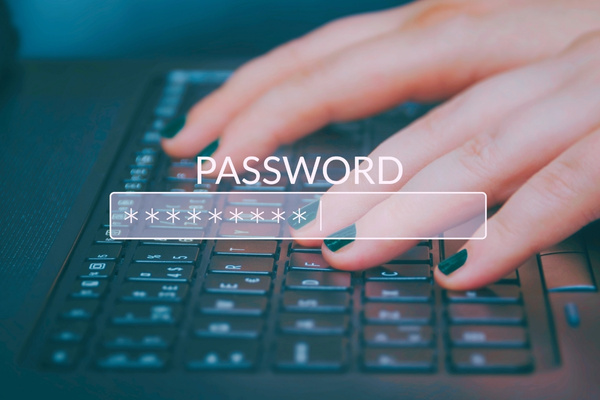
In what cybersecurity experts are calling “a blueprint for mass exploitation”, over 16 billion login credentials have been exposed in the largest data breaches in history.
More than 16 billion passwords and login credentials have been leaked in a major data breach, and yours could be one of them. Whilst this has been dubbed the largest data exposure in history, it’s not the end of the road. With the right tools and support, your business can turn this wake-up call into a cybersecurity win.
This isn’t just another headline for shock value, it’s a wake-up call for businesses across Australia, especially small to medium enterprises (SMEs) that often lack the layered cybersecurity defences of larger corporations.
If your business relies on digital platforms, from email and data storage to CRMs and financial tools, this data breach could directly impact your daily operations, your client’s valuable information, and ultimately, your company’s reputation.
Let’s break down what happened, why it matters, and what your business can do right now to protect your systems and data against the 16 billion credentials data breach.
What is the 16 Billion Passwords Data Breach?
In June 2025, cybersecurity researchers uncovered a staggering compilation of 30+ datasets containing more than 16 billion login credentials, including usernames, passwords, cookies, and authentication tokens. These credentials were linked to major platforms like Google, Apple, Facebook, GitHub, Telegram, and even government portals.
Importantly, this wasn’t a single breach of Google or any other tech giant. Instead, the data was harvested by infostealer malware, malicious software that quietly siphons login details from infected devices. These credentials were then compiled into massive databases and exposed online, creating a goldmine for cybercriminals.
According to Cybernews, the leaked data includes:
- Full login credentials (usernames + passwords)
- URLs of login pages
- Session cookies and tokens
- Metadata from browsers and apps
This isn’t just old data being recycled. Much of it is fresh intelligence, making it especially dangerous for businesses that reuse passwords or lack multi-factor authentication (MFA).
Why the 16 Billion Credentials Data Breach is so Dangerous for Businesses
While consumers are certainly at risk, businesses face a unique and amplified threat. Here’s why:
1. Credential Stuffing & Account Takeovers

Cybercriminals use automated tools to test stolen credentials across multiple platforms. If your team reuses passwords, one exposed login that is present in the breached 16 billion records could unlock access to your email, cloud storage, or financial systems.
2. Business Email Compromise
Business Email Compromise (BEC) scams, where attackers impersonate executives or vendors to trick staff into transferring funds, are on the rise. With access to real inboxes, attackers can craft convincing, targeted scams.
3. Phishing & Ransomware
Leaked credentials can be used to launch phishing campaigns or deploy ransomware, locking your systems and demanding payment for access.
4. Reputational Damage
A data breach doesn’t just cost money, it erodes trust. Clients expect their data to be protected. A single incident can lead to lost contracts, legal liability, and long-term brand damage.
Improving your businesses Password Hygiene
Password hygiene refers to the practices that keep your login credentials secure. Better password hygiene can help limit the effects in cyberattacks such as the 16 billion credentials data breach. Unfortunately, many businesses still fall into common traps:
- Reusing passwords across different platforms
- Using weak or guessable passwords (e.g. “Welcome123”)
- Storing passwords in browsers or spreadsheets
- Sharing credentials informally via email or chat
Best Practices for Strong Password Hygiene
- Use long, complex, and unique passwords for every account.
- Avoid personal information or predictable patterns.
- Enable multi-factor authentication (MFA) wherever possible.
- Never store passwords in plain text or unsecured documents.
Why Every Business Needs a Password Manager

A password manager is a secure vault that stores and encrypts your login credentials. For businesses, it’s not just a convenience, it’s a critical security tool.
Benefits of a Password Manager
As Keeper Security explains, password managers:
- Generate strong, unique passwords for every account
- Auto-fill credentials securely across devices
- Enable secure sharing of logins among team members
- Provide audit trails and access controls
- Support compliance with standards like ISO 27001 and the Essential Eight
Are Password Managers Safe?
Yes, when you choose a reputable provider.
While no software is 100% immune to a cyberattack, password managers use zero-knowledge encryption, meaning even the provider can’t see your data. The benefits far outweigh the risks, especially compared to storing passwords in browsers or spreadsheets. A password manager can also help combat the potential risks associated with events such as the 16 billion credentials data breach.
5 Cybersecurity Tips for Business Owners
Beyond passwords, there are several foundational steps every business should take to protect against cyber threats. The Australian Cyber Security Centre (ACSC) recommends the following:
1. Turn on Multi-Factor Authentication (MFA)
Multi-Factor Authentication adds a second layer of protection, such as a code sent to your phone or an authentication app. It’s one of the most effective ways to prevent unauthorised access.
2. Keep Software Updated
Outdated software is a common entry point for attackers. Enable automatic updates for operating systems, browsers, and apps.
3. Back Up Your Data
Regular, encrypted backups ensure you can recover quickly from ransomware or accidental data loss.
4. Train Your Team
Human error is a leading cause of breaches. Teach staff how to spot phishing emails, use secure passwords, and report suspicious activity. Adept IT Solutions offers comprehensive and high-quality Cybersecurity and Awareness Training for this very reason.
5. Use Tools Like “Have I Been Pwned”
Check if your email or passwords have been exposed using Have I Been Pwned or Google’s Dark Web Report feature.
5 Steps to Respond to the 16 Billion Credentials Data Breach
- Check if your credentials were exposed – Use Have I Been Pwned or contact us for a dark web scan.
- Change passwords immediately – Prioritise email, banking, and cloud platforms.
- Deploy a password manager – We can help you choose and implement the right solution for your team.
- Enable MFA across all accounts – Especially for email, admin portals, and financial tools.
- Book a cybersecurity audit with Adept IT Solutions – Identify vulnerabilities and get a tailored action plan.
How Adept IT Solutions Helps Businesses Stay Cyber Secure
At Adept IT Solutions, we understand the unique challenges faced by businesses in Newcastle, the Hunter, and the Central Coast. With over two decades of experience, we provide proactive, tailored cybersecurity solutions that go beyond just simple antivirus software. We offer a number of services that can directly assist with instances such as this 16 billion credentials data breach.
Our Cybersecurity Services Include:
- Managed IT Services with continuous monitoring
- Business-grade password manager implementation
- Patch management to keep systems up to date
- Backup and disaster recovery planning
- Phishing simulations and staff awareness training
- Risk assessments aligned with the ACSC’s Essential Eight
We’re not just IT providers, we’re your cybersecurity partners, helping you stay ahead of cyberattack threats and compliant with evolving standards. The 16 billion credentials that were exposed in this recent data breach is yet another example of the importance and need for robust cybersecurity implementation.
Cybersecurity isn’t just an IT issue, it’s a crucial business need.
Let Adept IT Solutions help you build a resilient, secure digital infrastructure. Contact us today for a FREE IT audit and take the first step toward peace of mind.
You can reach our team at 1300 423 378 or simply email us at info@adept-it.com.au. We look forward to hearing from you, and ensuring your business is safe, secure and protected during this major data breach situation exposing 16 billion credentials.

